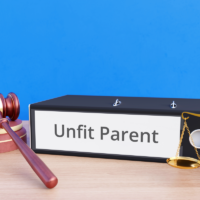What Factors Do Courts Use to Decide if a Parent is Unfit?

Texas courts decide child custody matters based on a holistic review of the best interests of the child. Under most circumstances, the court will find a way to maintain some custodial relationship between the child and both parents. Texas courts tend to believe that children benefit from continued contact with both of their parents. There are, however, circumstances under which a court will determine that a parent is unfit and that the child’s health and well-being are best served by severing the parent-child relationship.
Read on for a discussion of the court’s analysis when deciding whether a parent is unfit. If you have a question about parental fitness or other child custody disputes, call a dedicated Texas child custody and parental rights attorney for advice and representation.
What Is an Unfit Parent in the State of Texas?
Texas law and Texas courts generally presume that children benefit from continued contact with both parents. In a custody dispute, the court will typically only grant full custody to one parent when they are convinced that one parent is not fit to exercise their parental duties and obligations. If a parent is deemed unfit, they could lose their custodial and visitation rights, also known as conservatorship or possession and access.
In general, Texas family law deems a parent unfit to raise a child if the child’s physical or emotional health or development would be significantly, adversely affected by continuing the parent-child relationship. The court will evaluate whether the evidence in a particular case suggests that a child would be in danger should their parent maintain custody.
Factors the court will review include the relationship between the child and the parent, parenting styles, employment status, financial stability, living conditions, educational background, criminal history, history of violence, and others.
Common Reasons Parents Are Deemed Unfit
Texas courts will look for specific evidence and examples demonstrating that a child would not be safe with a particular parent. Some of the most common reasons why a court will deem a parent unfit to raise a child include:
- The parent has a history of drug or alcohol abuse
- The parent has a history of criminal activity, including a criminal record
- The parent is or will soon be incarcerated
- The parent has committed sexual offenses and criminal acts
- The parent has subjected the child, their spouse, or other family members to emotional abuse
- The parent’s living situation is unsuitable for the children
- The parent presents an unstable living environment
- The parent has a history of neglecting their parental responsibilities
- The parent has a history of domestic violence
Acts of child abuse or child neglect, as well as previous reports of involvement with Child Protective Services, are especially powerful in deeming a parent unfit to raise children.
Evidence may come in the form of medical reports; testimony from friends, family members, teachers, coaches, and other people familiar with the child; photos of the home, injuries, or other matters; evaluations from child psychologists and other experts; criminal records; restraining orders; texts, emails, voicemails, and other communications; and any other evidence that shows whether or not a parent is fit to care for a child’s needs. The court will review all allegations and evidence presented to determine if a parent is unfit.
Call a Zealous Texas Child Custody and Parental Rights Lawyer
If you are dealing with child custody issues during or after divorce, you need assistance from a trusted Texas family law attorney. Call on a diligent divorce and child custody attorney at the Law Office of Maria Lowry to discuss your Texas child custody (conservatorship) matter.
